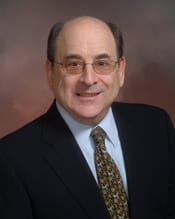Media Contact:
Nalini Padmanabhan
ASHG Communications Manager
301.634.7346
press@ashg.org
For Immediate Release
Thursday, June 26, 2014
1:00 pm U.S. Eastern Time (UTC-05:00)
Physician-Geneticist to Receive Award at ASHG 2014 Annual Meeting

BETHESDA, MD – The American Society of Human Genetics (ASHG) has named Stuart H. Orkin, MD, David G. Nathan Professor of Pediatrics at Harvard Medical School, Chairman of the Department of Pediatric Oncology at Dana-Farber Cancer Institute, Associate Chief of Hematology/Oncology at Boston Children’s Hospital and Investigator of the Howard Hughes Medical Institute at Boston Children’s Hospital, the 2014 recipient of the annual William Allan Award.
The Allan Award, which recognizes a scientist for substantial and far-reaching scientific contributions to human genetics, was established in 1961 in memory of William Allan, MD (1881-1943), one of the first American physicians to conduct extensive research on human genetics and hereditary diseases. Dr. Orkin will receive his award, which will include an engraved medal and $10,000 monetary prize, on Monday, October 20, during ASHG’s 64th Annual Meeting in San Diego. He will present his William Allan Award address immediately thereafter.
Dr. Orkin has pioneered research into the genetics behind blood diseases, including identifying the primary mutations (genetic changes) that cause them, defining factors that regulate how these mutations are expressed in blood cells, and applying their findings to medicine. In the late 1970s and early 1980s, Dr. Orkin and colleagues comprehensively defined mutations that lead to the thalassemias, a collection of inherited conditions in which the body produces too little of the oxygen-carrying molecule hemoglobin, which leads to anemia.
In the mid-1980s, Dr. Orkin’s laboratory was the first to successfully clone a gene causing a disease (chronic granulomatous disease) without already knowing the protein coded by the gene. Their approach to mapping mutations has since been used in similar studies of other genetic disorders. More recently, Dr. Orkin’s laboratory characterized the switch from fetal to adult hemoglobin and how this switch is regulated. They are currently exploring ways to translate these insights into new treatments for thalassemias and sickle cell anemia.
Dr. Orkin was elected to the National Academy of Sciences (NAS) in 1991 and the Institute of Medicine in 1992. In 2013, he received the NAS Jessie Stevenson Kovalenko Medal. In addition to his contributions to human genetics, ASHG recognizes Dr. Orkin’s longtime membership in the Society, including his service on the editorial board of The American Journal of Human Genetics.
About the American Society of Human Genetics (ASHG)
Founded in 1948, the American Society of Human Genetics is the primary professional membership organization for human genetics specialists worldwide. Its nearly 8,000 members include researchers, academicians, clinicians, laboratory practice professionals, genetic counselors, nurses, and others with an interest in human genetics. The Society serves scientists, health professionals, and the public by providing forums to: (1) share research results through the ASHG Annual Meeting and in The American Journal of Human Genetics; (2) advance genetic research by advocating for research support; (3) educate current and future genetics professionals, health care providers, advocates, policymakers, educators, students, and the public about all aspects of human genetics; and (4) promote genetic services and support responsible social and scientific policies. For more information, visit: http://www.ashg.org.
9650 Rockville Pike | Bethesda, MD 20814 | 301.634.7300 | society@ashg.org | www.ashg.org
Connect with ASHG on Twitter (@GeneticsSociety) | Facebook | LinkedIn
